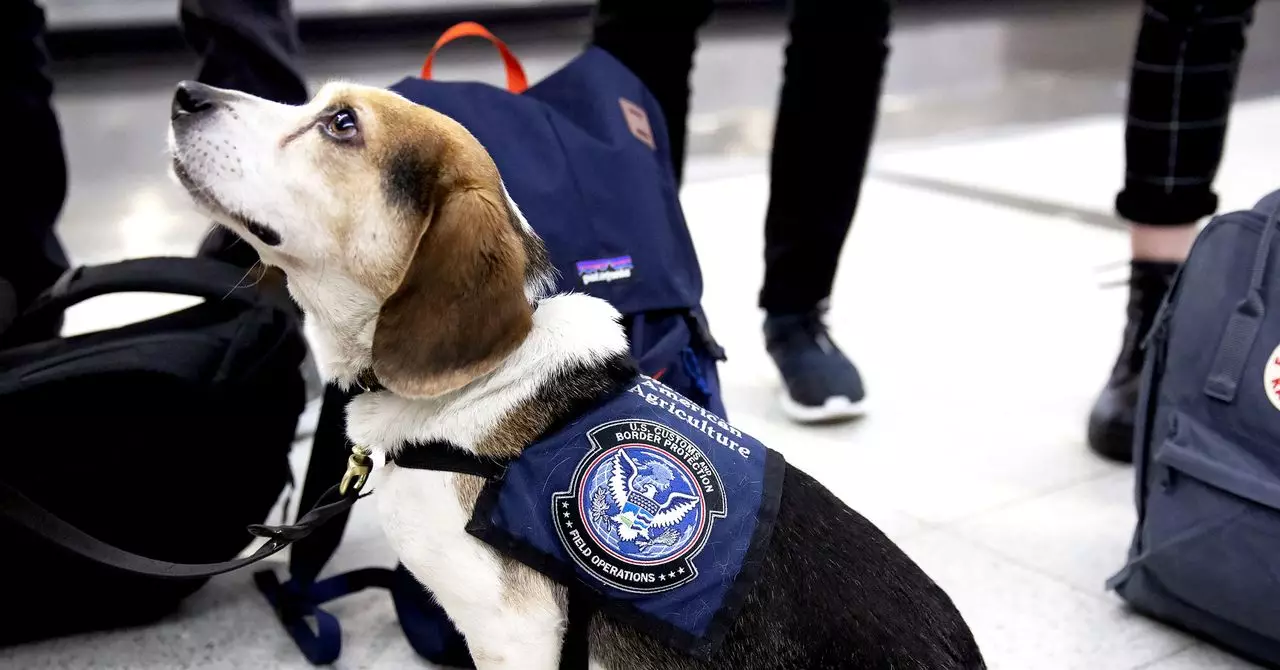The recent mass layoffs at the United States Department of Agriculture (USDA) have sent shockwaves through agriculture and food safety sectors, unraveling years of meticulous training and expertise. The dismissal of approximately 6,000 employees, including specialized trainers like Derek Copeland, has not only stripped the department of critical knowledge but has opened the door to potential economic and environmental disasters. This significant loss of human resources is a stark reminder that the backbone of food security relies on not only technology but also skilled professionals who have dedicated their lives to safeguarding the nation’s agriculture.
Before his abrupt termination, Copeland was one of the few experts training dogs to detect invasive mollusks like the Giant African land snail, which poses a severe threat to Florida’s agricultural ecosystem. His experience underscores the crucial role of trained personnel in identifying and mitigating risks posed by non-native species, which often arrive via global shipping lanes. When such positions are eliminated, the state’s ability to preemptively tackle these encroaching dangers weakens considerably.
Specialization: The Key to Effective Agricultural Inspections
The USDA’s specialized workforce included inspectors, entomologists, and taxonomists—all of whom contributed to a robust framework aimed at maintaining the integrity of America’s food supply. With these teams dismantled, the USDA now operates on a skeletal crew, which has far-reaching implications for agricultural inspections. As a current USDA employee commented, the loss of such experienced personnel cannot easily be compensated with technology. Automated systems might help assess food shipments, but they lack the nuanced understanding and foresight that seasoned professionals bring.
Critics argue that the government’s pursuit of efficiency through cuts has overlooked the fundamental principle that complexities in agriculture require a human touch. Crops and livestock are living entities that do not respond to algorithms and artificial intelligence in the way one might expect; thorough inspections and proactive measures are essential to preventing costly blunders, from rotting produce to invasive pest infestations.
The Ripple Effect on Supply Chains and Grocery Prices
The ramifications of these layoffs extend beyond the immediate loss of expertise. Experts like Mike Lahar, who oversees regulatory affairs at a customs brokerage, foresee dire consequences for the food supply chain as a direct result of understaffing. If inspectors are reduced by substantial percentages—such as the estimated 35% cut at the Port of Los Angeles—the likelihood of food spoilage increases, directly impacting grocery prices and consumer access to fresh produce.
This situation is exacerbated by existing challenges in the supply chain, including bird flu and geopolitical factors like tariffs initiated during the previous administration. On top of already strained systems, further layoffs could lead to situations where more food becomes unsaleable. In a country where hunger is still a pressing concern, this poses a serious ethical dilemma—will inefficiencies in our inspection systems lead to more waste, while many go without adequate nutrition?
Addressing the Challenges Ahead
As the USDA navigates this crisis, one thing has become glaringly clear: re-hiring skilled professionals should be a top priority. The training that goes into preparing these experts is not merely about passing a course; it involves years of practical, hands-on experience, which cannot be accelerated or overlooked. Restoring insufficient personnel levels is essential to counteracting the vulnerabilities posed by recent cuts.
Further complicating the issue, the American populace remains largely unaware of the intricate systems put in place to protect their food supply. Public perception of agricultural inspections often overlooks the specialized knowledge that underpins effective pest management. Several stakeholders in the agricultural sector are now calling for greater public engagement on these issues, pushing for transparency and highlighting the importance of maintaining expert teams.
The backdrop of these conversations is rooted in a crisis that demands urgency. The governmental philosophy that prioritizes cuts over strategic planning is creating an unsustainable trajectory that places our national food security at risk. As we forge ahead in this unpredictable landscape, there needs to be a collective call to action for restoring the integrity of our agricultural safeguards before it is too late.

